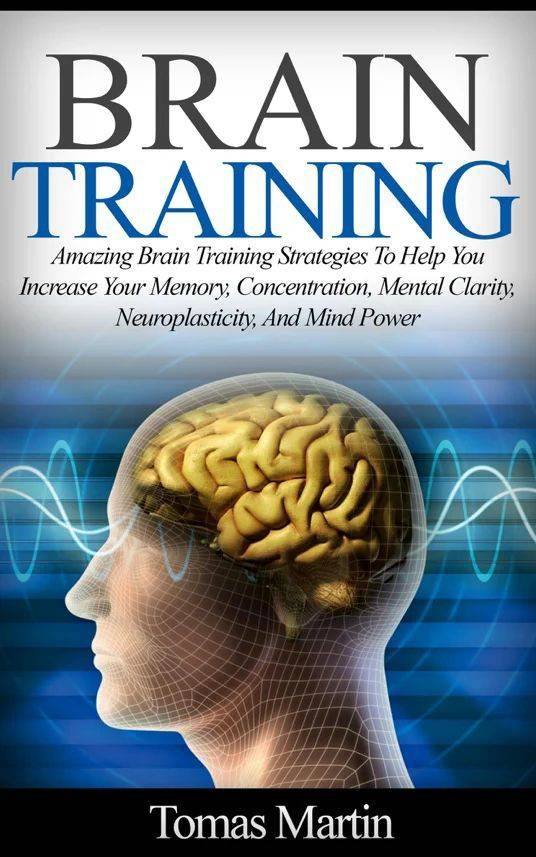How to Develop or Train Your Brain: A Comprehensive Guide
The human brain is an extraordinary organ, responsible for our thoughts, emotions, decisions, and creativity. Like any muscle in the body, it requires exercise and care to function at its best. By engaging in activities that stimulate the mind, practicing self-care habits, and embracing continuous learning, you can significantly enhance your cognitive abilities. This article explores proven strategies to train and develop your brain for better focus, memory, creativity, and mental resilience.
1. Engage in Mental Exercises:
One of the most effective ways to train your brain is by regularly challenging it with activities that promote critical thinking and problem-solving.
Puzzles and Games: Playing games such as chess, sudoku, crossword puzzles, and jigsaw puzzles can enhance cognitive functions like memory, logic, and spatial reasoning.
Learn a New Skill: Taking up a new hobby, such as learning a musical instrument, painting, or coding, stimulates different areas of the brain, boosting creativity and adaptability.
Reading and Writing: Reading books on various subjects, writing essays, or keeping a journal can help expand your vocabulary, enhance comprehension, and improve cognitive function.
2. Embrace Lifelong Learning:
Continuous learning helps keep the brain engaged and open to new experiences. Acquiring knowledge stimulates the brain to form new connections between neurons.
Take Online Courses: There are numerous platforms offering courses on virtually every subject. Whether it’s history, science, philosophy, or a new language, learning something new keeps your brain sharp.
Attend Workshops or Seminars: Participate in workshops and seminars to gain new perspectives, interact with peers, and expand your network.
Read Widely: Diversify your reading material. Explore different genres, from fiction to biographies and scientific articles. This exposes your brain to various forms of information processing and thinking patterns.
3. Practice Mindfulness and Meditation:
Mindfulness and meditation are powerful tools for developing focus, clarity, and mental resilience. Regular meditation helps reduce stress, improve emotional regulation, and enhance attention span.
Mindful Breathing: Focusing on your breath can calm the mind and help improve concentration. This practice also reduces mental fatigue, allowing the brain to function more efficiently.
Guided Meditation: Guided meditation sessions can train your brain to focus better, reduce anxiety, and increase self-awareness, all of which are essential for optimal brain function.
Visualization Techniques: Visualizing success or engaging in creative mental imagery exercises helps stimulate the brain's creativity and problem-solving abilities.
4. Physical Exercise for Brain Health:
Physical activity isn't just good for your body—it's also crucial for brain health. Exercise increases blood flow to the brain, which helps deliver oxygen and nutrients essential for its optimal performance.
Aerobic Exercise: Running, swimming, and cycling improve memory and cognitive function by promoting neurogenesis, the creation of new neurons in the brain.
Strength Training: Resistance exercises, such as weightlifting, have been linked to better brain function, particularly in older adults, as they help improve coordination and reduce the risk of cognitive decline.
Yoga and Tai Chi: These forms of exercise combine physical activity with mindfulness, enhancing mental focus, flexibility, and stress management.
5. Nutrition for Cognitive Enhancement:
A well-balanced diet plays a crucial role in brain health. Certain foods are known to support cognitive functions and prevent cognitive decline.
Omega-3 Fatty Acids: Found in fatty fish, flaxseeds, and walnuts, omega-3s are essential for brain development and help improve memory and learning capacity.
Antioxidants: Berries, dark chocolate, and green tea are rich in antioxidants, which protect the brain from oxidative stress and reduce inflammation.
Hydration: The brain is made up of about 75% water, so staying hydrated is critical for maintaining focus, memory, and overall mental performance.
6. Get Adequate Sleep:
Sleep is essential for brain function, as it consolidates memories and removes toxins that accumulate during waking hours.
Follow a Regular Sleep Schedule: Going to bed and waking up at the same time every day helps regulate your body’s internal clock, leading to better sleep quality.
Prioritize Deep Sleep: Deep sleep stages are when the brain performs most of its recovery and memory consolidation. Avoid distractions and create an environment conducive to restful sleep.
Naps for Brain Boosting: Short naps (20-30 minutes) during the day can help recharge your brain, improving alertness and cognitive performance without disrupting nighttime sleep.
7. Build Social Connections
Human interaction is vital for brain development. Maintaining strong social connections can improve cognitive function, mental health, and even longevity.
Engage in Conversations: Regular conversations, particularly those involving problem-solving or learning new things, help keep your brain sharp.
Join Social Groups: Participating in group activities, whether in person or online, creates opportunities for learning and cognitive stimulation.
Volunteer: Volunteering is a great way to meet new people while engaging in activities that challenge the brain, often through problem-solving and communication.
8. Reduce Stress:
Chronic stress can negatively affect brain health by impairing memory, focus, and emotional regulation. Finding ways to manage and reduce stress is key to maintaining cognitive performance.
Exercise: Physical activity helps reduce stress hormones like cortisol while boosting endorphins, which improve mood and cognitive function.
Hobbies and Creative Outlets: Engaging in activities you enjoy, such as painting, gardening, or playing music, helps reduce stress and provides a creative outlet for mental energy.
Therapy and Counseling: If stress becomes overwhelming, therapy or counseling can provide tools for managing stress and improving mental well-being.
How to Develop or Train Your Brain: A Comprehensive Guide
The human brain is an extraordinary organ, responsible for our thoughts, emotions, decisions, and creativity. Like any muscle in the body, it requires exercise and care to function at its best. By engaging in activities that stimulate the mind, practicing self-care habits, and embracing continuous learning, you can significantly enhance your cognitive abilities. This article explores proven strategies to train and develop your brain for better focus, memory, creativity, and mental resilience.
1. Engage in Mental Exercises:
One of the most effective ways to train your brain is by regularly challenging it with activities that promote critical thinking and problem-solving.
Puzzles and Games: Playing games such as chess, sudoku, crossword puzzles, and jigsaw puzzles can enhance cognitive functions like memory, logic, and spatial reasoning.
Learn a New Skill: Taking up a new hobby, such as learning a musical instrument, painting, or coding, stimulates different areas of the brain, boosting creativity and adaptability.
Reading and Writing: Reading books on various subjects, writing essays, or keeping a journal can help expand your vocabulary, enhance comprehension, and improve cognitive function.
2. Embrace Lifelong Learning:
Continuous learning helps keep the brain engaged and open to new experiences. Acquiring knowledge stimulates the brain to form new connections between neurons.
Take Online Courses: There are numerous platforms offering courses on virtually every subject. Whether it’s history, science, philosophy, or a new language, learning something new keeps your brain sharp.
Attend Workshops or Seminars: Participate in workshops and seminars to gain new perspectives, interact with peers, and expand your network.
Read Widely: Diversify your reading material. Explore different genres, from fiction to biographies and scientific articles. This exposes your brain to various forms of information processing and thinking patterns.
3. Practice Mindfulness and Meditation:
Mindfulness and meditation are powerful tools for developing focus, clarity, and mental resilience. Regular meditation helps reduce stress, improve emotional regulation, and enhance attention span.
Mindful Breathing: Focusing on your breath can calm the mind and help improve concentration. This practice also reduces mental fatigue, allowing the brain to function more efficiently.
Guided Meditation: Guided meditation sessions can train your brain to focus better, reduce anxiety, and increase self-awareness, all of which are essential for optimal brain function.
Visualization Techniques: Visualizing success or engaging in creative mental imagery exercises helps stimulate the brain's creativity and problem-solving abilities.
4. Physical Exercise for Brain Health:
Physical activity isn't just good for your body—it's also crucial for brain health. Exercise increases blood flow to the brain, which helps deliver oxygen and nutrients essential for its optimal performance.
Aerobic Exercise: Running, swimming, and cycling improve memory and cognitive function by promoting neurogenesis, the creation of new neurons in the brain.
Strength Training: Resistance exercises, such as weightlifting, have been linked to better brain function, particularly in older adults, as they help improve coordination and reduce the risk of cognitive decline.
Yoga and Tai Chi: These forms of exercise combine physical activity with mindfulness, enhancing mental focus, flexibility, and stress management.
5. Nutrition for Cognitive Enhancement:
A well-balanced diet plays a crucial role in brain health. Certain foods are known to support cognitive functions and prevent cognitive decline.
Omega-3 Fatty Acids: Found in fatty fish, flaxseeds, and walnuts, omega-3s are essential for brain development and help improve memory and learning capacity.
Antioxidants: Berries, dark chocolate, and green tea are rich in antioxidants, which protect the brain from oxidative stress and reduce inflammation.
Hydration: The brain is made up of about 75% water, so staying hydrated is critical for maintaining focus, memory, and overall mental performance.
6. Get Adequate Sleep:
Sleep is essential for brain function, as it consolidates memories and removes toxins that accumulate during waking hours.
Follow a Regular Sleep Schedule: Going to bed and waking up at the same time every day helps regulate your body’s internal clock, leading to better sleep quality.
Prioritize Deep Sleep: Deep sleep stages are when the brain performs most of its recovery and memory consolidation. Avoid distractions and create an environment conducive to restful sleep.
Naps for Brain Boosting: Short naps (20-30 minutes) during the day can help recharge your brain, improving alertness and cognitive performance without disrupting nighttime sleep.
7. Build Social Connections:
Human interaction is vital for brain development. Maintaining strong social connections can improve cognitive function, mental health, and even longevity.
Engage in Conversations: Regular conversations, particularly those involving problem-solving or learning new things, help keep your brain sharp.
Join Social Groups: Participating in group activities, whether in person or online, creates opportunities for learning and cognitive stimulation.
Volunteer: Volunteering is a great way to meet new people while engaging in activities that challenge the brain, often through problem-solving and communication.
8. Reduce Stress:
Chronic stress can negatively affect brain health by impairing memory, focus, and emotional regulation. Finding ways to manage and reduce stress is key to maintaining cognitive performance.
Exercise: Physical activity helps reduce stress hormones like cortisol while boosting endorphins, which improve mood and cognitive function.
Hobbies and Creative Outlets: Engaging in activities you enjoy, such as painting, gardening, or playing music, helps reduce stress and provides a creative outlet for mental energy.
Therapy and Counseling: If stress becomes overwhelming, therapy or counseling can provide tools for managing stress and improving mental well-being.
Finally.......
Developing and training your brain requires a multifaceted approach, combining mental, physical, and emotional health practices. By engaging in cognitive challenges, fostering lifelong learning, maintaining physical health, and managing stress, you can ensure your brain remains sharp, adaptable, and resilient. With consistent effort, these strategies can help you unlock your brain’s full potential and improve overall well-being.
Developing and training your brain requires a multifaceted approach, combining mental, physical, and emotional health practices. By engaging in cognitive challenges, fostering lifelong learning, maintaining physical health, and managing stress, you can ensure your brain remains sharp, adaptable, and resilient. With consistent effort, these strategies can help you unlock your brain’s full potential and improve overall well-being.
Thanks for reading 📚
MOÃSE




No comments yet
Be the first to share your thoughts!